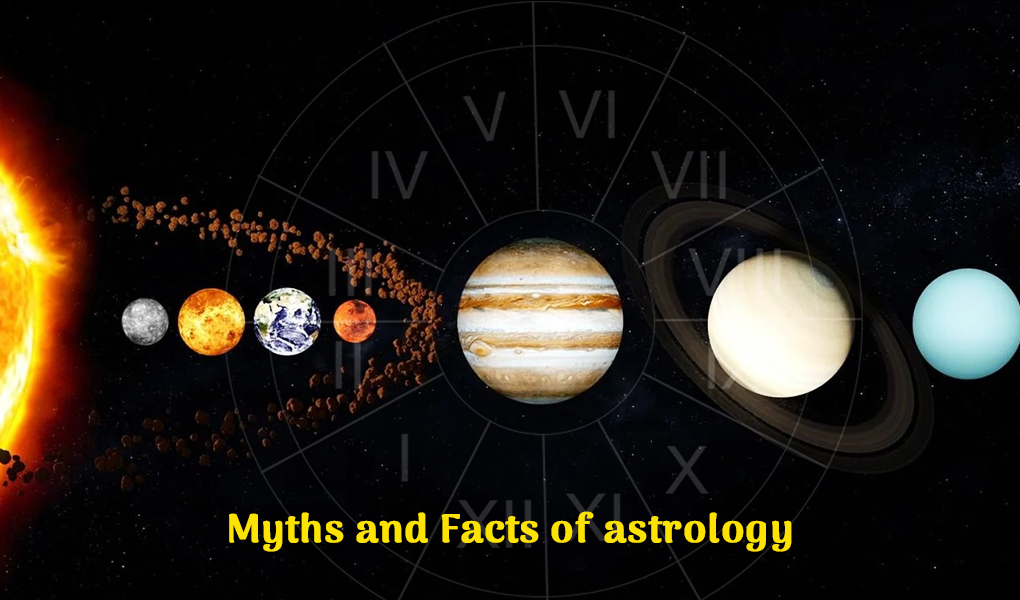10 Myths and Facts of Astrology: What You Need to Know
Introduction
Astrology, with its celestial mystique, has fascinated humanity for centuries. Yet, amidst the fascination, myths and misconceptions have proliferated. In this exploration, we unveil the truths and debunk the myths that surround astrology, seeking to bring clarity to this ancient and enigmatic practice.
Myth 1: Astrology Can Predict the Future with Certainty
Astrology’s Predictive Power: Myth or Reality?
While astrology offers insights into potential life paths, it does not provide certainties. Astrological predictions are based on the alignment of celestial bodies at the time of birth, offering guidance rather than infallible foresight.
The Limitations of Astrological Predictions
Factors such as free will and unforeseen circumstances influence the course of one’s life, rendering absolute predictions impossible. Astrology serves as a roadmap, not a crystal ball.
Myth 2: All Astrologers Provide Accurate Readings
The Varied Landscape of Astrologers
Astrologers vary in skill and authenticity. Some are well-trained and experienced, while others may lack credibility. Seek recommendations and research an astrologer’s qualifications to ensure accuracy.
How to Identify a Credible Astrologer
A credible astrologer will have a reputable background, adhere to ethical guidelines, and provide transparent information about their methods and limitations.
Myth 3: Astrology Is a Science
The Controversial Status of Astrology as a Science
Astrology remains a subject of debate within the scientific community. While it doesn’t conform to traditional scientific methods, it offers a unique lens for understanding human behaviour and life events.
Astrology’s Unique Role in Human Understanding
Astrology’s value lies in its ability to delve into the psychological and symbolic aspects of human experience, complementing but not replacing scientific inquiry.
Myth 4: Astrology Only Considers Sun Signs
Beyond the Sun Sign: A Deeper Dive into Astrology
Astrology is far more intricate than just sun signs. It considers moon signs, rising signs, and planetary positions, each contributing to a more nuanced and comprehensive astrological profile.
Understanding the Significance of Moon, Rising, and Planetary Signs
These factors add layers of complexity to astrological interpretations, offering deeper insights into one’s personality and life journey.
Myth 5: Astrology Determines Personality Traits
Astrology vs. Genetics: What Shapes Our Personalities?
Astrology influences personality traits symbolically but doesn’t dictate them. Genetics, upbringing, and life experiences play substantial roles in shaping who we are.
How Astrology Reflects Traits but Doesn’t Dictate Them
Astrology highlights predispositions and tendencies, empowering individuals to harness their strengths and work on their weaknesses.
Myth 6: Astrology Is Incompatible with Religion
Exploring the Intersection of Astrology and Spirituality
Astrology and spirituality can coexist. Many religious traditions incorporate astrological elements, viewing them as tools for self-reflection and guidance.
Religious Perspectives on Astrology
Religious views on astrology vary, and some individuals may choose to embrace or reject astrology based on their beliefs. It is a matter of personal interpretation.
Myth 7: Astrology Is Just Superstition
Unearthing the Historical Roots of Astrology
Astrology has a rich historical foundation, evolving from early astronomical observations. It has played pivotal roles in cultural, medical, and philosophical contexts throughout history.
The Role of Superstition vs. Symbolism in Astrology
While some may approach astrology superstitiously, it primarily operates through symbolic language, offering profound insights into the human psyche.
Myth 8: Astrology Is Gender and Age-Specific
Astrology’s Universality: Appeal Across Genders and Ages
Astrology transcends gender and age boundaries. People of all genders and ages find solace and guidance in astrology.
How Different Life Stages May Influence Astrological Interpretations
Life stages and experiences may influence how individuals relate to astrology, but its principles remain universally applicable.
Myth 9: Astrology Only Focuses on Personal Matters
Expanding the Horizons of Astrology: Mundane and Global Astrology
Astrology extends beyond individual concerns. Mundane and global astrology explore broader societal trends, political events, and environmental shifts.
The Role of Astrology in Predicting Societal Trends
Astrologers analyze celestial patterns to gain insights into collective behaviours and societal developments.
Myth 10: Astrology Has No Practical Applications
Real-World Applications of Astrology
Astrology has practical uses. It aids in decision-making, career guidance, and personal development. Businesses and individuals often consult astrologers for insights.
How Astrology Can Enhance Self-Awareness and Decision-Making
By promoting self-awareness and offering guidance, astrology empowers individuals to make informed choices, fostering personal growth and fulfilment.
Debunking Astrology Myths: A Recap
The Truths and Misconceptions of Astrology
Astrology, a blend of symbolism, psychology, and cosmic exploration, offers valuable insights into the human experience. Understanding its limitations and potential enhances its role in our lives.
Conclusion on 10 Myths and Facts of Astrology
Astrology, an ever-evolving field, continues to captivate minds and hearts. Separating myths from facts allows us to embrace astrology as a tool for self-discovery, insight, and personal growth. In an ever-changing world, the enduring allure of the stars and planets remains a source of wonder and wisdom.
Read About 10 Myths and Facts About Lord Shiva

